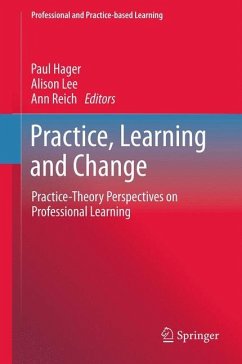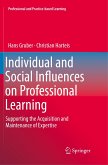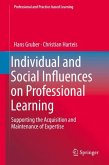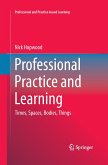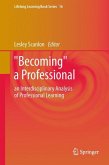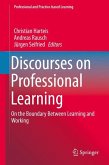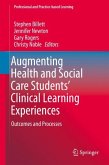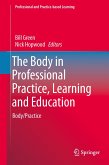The three concepts central to this volume-practice, learning and change-have received very different treatments in the educational literature, an oversight directly confronted here. While learning and change have been extensively theorised, their various contexts articulated and analysed, practice is notably underrepresented. Where much of the literature on learning and change takes the notion of 'practice' as an unexamined given, its co-location as a term with various classifiers, as in 'legal practice' and 'teaching practice', render it curiously devoid of semantic force.
In this book, 'practice' is the super-ordinate organising idea. Drawing on what has been termed the 'practice turn in contemporary theory', the work develops a conceptual framework for researching learning in, and on, practice. It challenges received notions of practice, questioning the assumptions, elisions, conflations and silences on the subject. In so doing, it offers fresh insights into learning and change, and how they relate to practice. In tandem with this conceptual work, the book details site-ontological studies of practice and learning in diverse professional and workplace contexts, examining the work of occupations as various as doctors, chefs and orchestral musicians. It demonstrates the value of theorising practice, learning and change, as well as exploring the connections between them amid our evolving social and institutional structures.
In this book, 'practice' is the super-ordinate organising idea. Drawing on what has been termed the 'practice turn in contemporary theory', the work develops a conceptual framework for researching learning in, and on, practice. It challenges received notions of practice, questioning the assumptions, elisions, conflations and silences on the subject. In so doing, it offers fresh insights into learning and change, and how they relate to practice. In tandem with this conceptual work, the book details site-ontological studies of practice and learning in diverse professional and workplace contexts, examining the work of occupations as various as doctors, chefs and orchestral musicians. It demonstrates the value of theorising practice, learning and change, as well as exploring the connections between them amid our evolving social and institutional structures.

